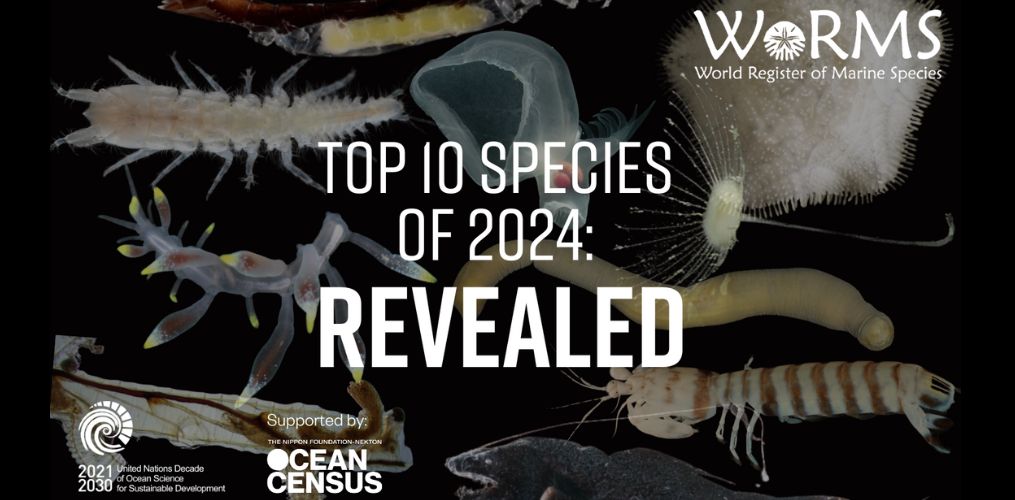
Every year, the World Register of Marine Species releases its annual list of the top ten remarkable marine species described by researchers during the previous year.
We are glad to announce that the 2024 list was revealed on 19 March, a date that coincides with World Taxonomist Appreciation Day. This date was not randomly chosen: it is worth noting that over 340 taxonomists around the world contribute their time to keeping the World Register of Marine Species up to date, and this is WoRMS’ way of acknowledging their work and celebrating taxonomists worldwide.
Selecting the top ten was no easy task, with an average of 2,000 fascinating new marine species discovered every year, and over 3,200 described in 2024 alone. The call for nominations was announced in December 2024 and sent to all WoRMS editors and major taxonomy journals.
The final decisions reflect the immense diversity of taxonomic groups in the marine environment, including crustaceans, corals, sponges, jellies, and worms.
Read the full press release here: https://marinespecies.org/worms-top-ten/2024/press-release
About WoRMS: hosted by the Flanders Marine Institute (VLIZ), within LifeWatch Belgium (the National Distributed Centre of LifeWatch ERIC – more info here), the World Register of Marine Species grew out of the ERMS, the European Register of Marine Species, combined with a series of registers maintained at the Flanders Marine Institute (VLIZ).